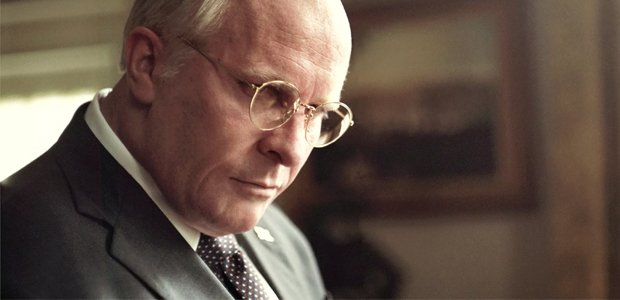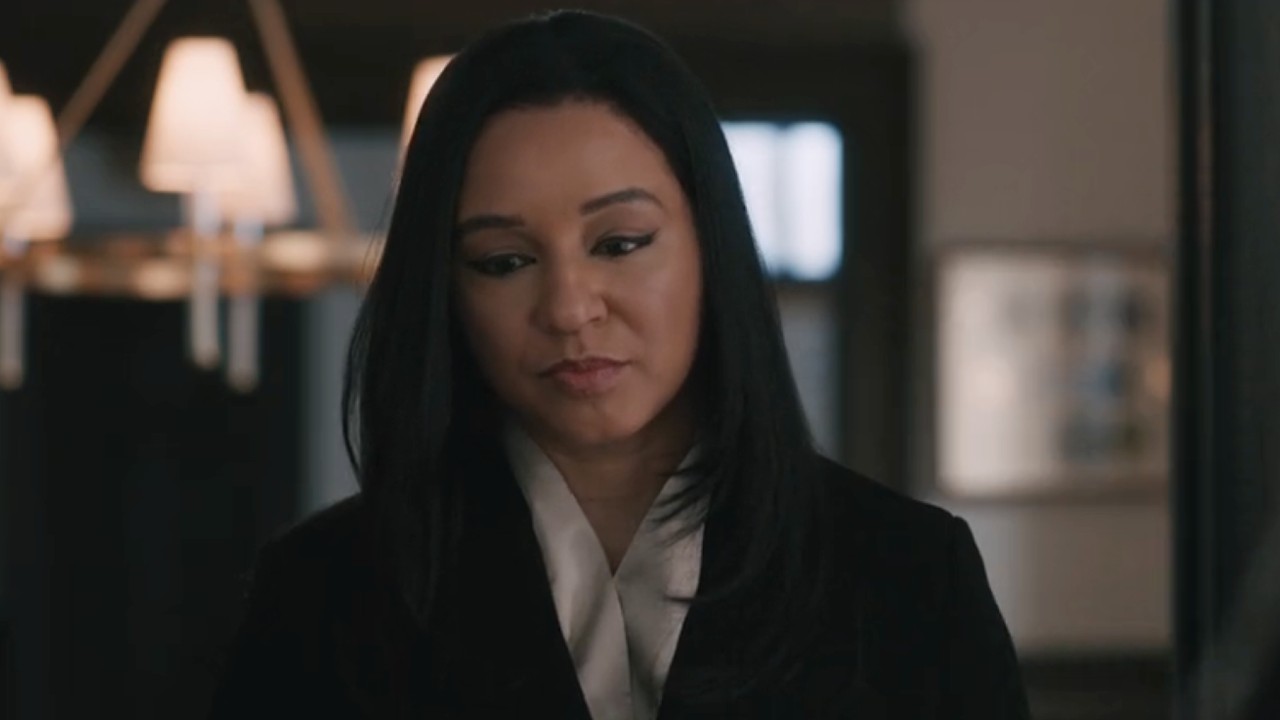Adam McKay is evolving into a fascinating auteur. In 2015 he made a sharp left turn in the subject matter department, going from movies about goofy anchormen and step brothers to the 2008 housing market crash -- but he maintained continuity in one crucial area: tone. The Big Short is far more serious material than Talladega Nights or The Other Guys (which, admittedly, has its own subtle economic commentary), but it's also a film highlighted with tremendous wit, laugh-out-loud material, and a perfect comedic touch.
We now have its spiritual sequel, Vice, which is, once again, a look back at the critical historical events that helped mold the world in which we currently live -- particularly those in the first decade of the 21st century. The subject is Dick Cheney, a man the film outright admits in its opening moments is an excessively secretive figure, and it in equal parts plays as both a highlight reel and dramatic expose -- showcasing many of the sinister and disturbing machinations that were kept hidden from public knowledge at the time. It's weighty, credible and at times shockingly intense, but what makes it sing is that McKay Touch.
Rather than being an adaptation, like The Big Short was, Vice is based on an original screenplay by Adam McKay, and those deeply embedded fingerprints drive what is one of the best films of the year. The movie takes you on a surprisingly epic journey, chronicling his rise from drunken college fail out to Vice President of the United States, and weaves a phenomenal story that is a complex mix of oddity, awfulness, revelation, and devastation... and that's all without mentioning the all-timer performances from its remarkable leads.
We first meet Dick (Christian Bale) as a slovenly drunk, hitting a turning point in his life when he gets arrested for driving while intoxicated. Motivation from his would-be wife, Lynne (Amy Adams), drives him to start to fix himself, and seven years later he finds himself a path via a congressional internship. With no actual ideology of his own, just an attraction to power, Dick hitches his wagon to Richard Nixon's brash and blunt Director of the Office of Economic Opportunity, Donald Rumsfeld (Steve Carell).
This was in 1969, and from there he finds his way into every Republican administration, his title becoming more prominent with each new President. His coup de grace, however, is performed in the year 2001 when he is able to exploit the presidency of George W. Bush (Sam Rockwell) to essentially become the most powerful man in the world and orchestrate some of the most significant events in modern history.
Biopics like these are occasionally problematic, as opting for a sprawling narrative over something more specific can sometimes make a film feel disjointed or slow, but Dick Cheney is, frankly, too fascinating a figure to succumb to these issues. He's not a particularly passionate or captivating persona (emphasized when shown on the campaign trail delivering a speech to a totally disengaged audience), but his stoicism and strategic mind keep you on the edge and curious about his process -- even if it's all history that you already know about. And, of course, these key chess moves all play out around Cheney's multiple heart attacks, telling Senator Patrick Leahy to go fuck himself on the floor of the Senate, and the infamous time he shot a man in the face during a hunting expedition.
Like he did with The Big Short, Adam McKay also includes some smart fourth-wall breaking to help handle some of the complex-yet-necessary exposition -- particularly through the film's mysterious but important narrator, played by Jesse Plemons -- and it's here where the writer/director's style is extra important and effective. As dirty as the word may seem in a world of entertainment, Vice can be described as an educational movie, but it's an easy-to-swallow pill because of the style and charisma of the teacher. We don't have Margot Robbie in a bubble bath explaining complex financial terms to us in this one, but we do have Dick Cheney's exemplary persuasion skills illustrated with a discussion about putting clown wigs on penises during a meeting with President Gerald Ford.
The story and storytelling are the reward you get for purchasing a ticket to Vice, but what is clearly selling the film are the transformative performances by Christian Bale and Amy Adams -- both of whom live up to the hype in every single way. In the case of the former, I'm still wondering how anybody considered the star of The Dark Knight and The Fighter and said, "That guy could look like a perfect clone of Dick Cheney," but the ultimate truth is that the results are absolutely stunning (with tremendous credit also belonging to the makeup department). The actor utterly vanishes into this part, matching every mannerism of the notorious politician, and it's a sight to behold. It's remarkable that Bale can be both a headliner star and the chameleon that he is, but it's a true testament to his incredible gifts.
Amy Adams' turn is more subtle on the transformative side of things, but she is a force to be reckoned with here. It's easy to make Lady Macbeth/"woman behind the man" comparisons, but that makes them no less accurate, as it's her relationship with her husband that motivates him to be the grimacing, power-hungry golem he becomes. And Adams makes you believe it. It's a power unlike anything she's wielded in any performance before -- long removed from Susan in Talladega Nights -- and some of the best work of her career.
It's always been easy to love Adam McKay's work, as his collaborations with Will Ferrell stand as some of the most hilarious, re-watchable comedies of the young millennium, but the work he is doing now is definitely next level. Vice is vital and important filmmaking, delivered in a unique and incredible way by an exceptional filmmaker. One can pray that he doesn't only delve into these arenas going forward, as the world needs his goofiness as well, but what's guaranteed is that anything he now takes on deserves special attention.

Eric Eisenberg is the Assistant Managing Editor at CinemaBlend. After graduating Boston University and earning a bachelor’s degree in journalism, he took a part-time job as a staff writer for CinemaBlend, and after six months was offered the opportunity to move to Los Angeles and take on a newly created West Coast Editor position. Over a decade later, he's continuing to advance his interests and expertise. In addition to conducting filmmaker interviews and contributing to the news and feature content of the site, Eric also oversees the Movie Reviews section, writes the the weekend box office report (published Sundays), and is the site's resident Stephen King expert. He has two King-related columns.
Someone Put Together A Compilation Of Tom Holland Calling His Spider-Man Role, Loving Zendaya And Uncharted Before They Happened (And Talk About Manifesting What You Want)
The Oscars Are Finally Awarding Stunts, But Fans Can't Stop Making The Same Sad Point About Tom Cruise And Mission: Impossible











